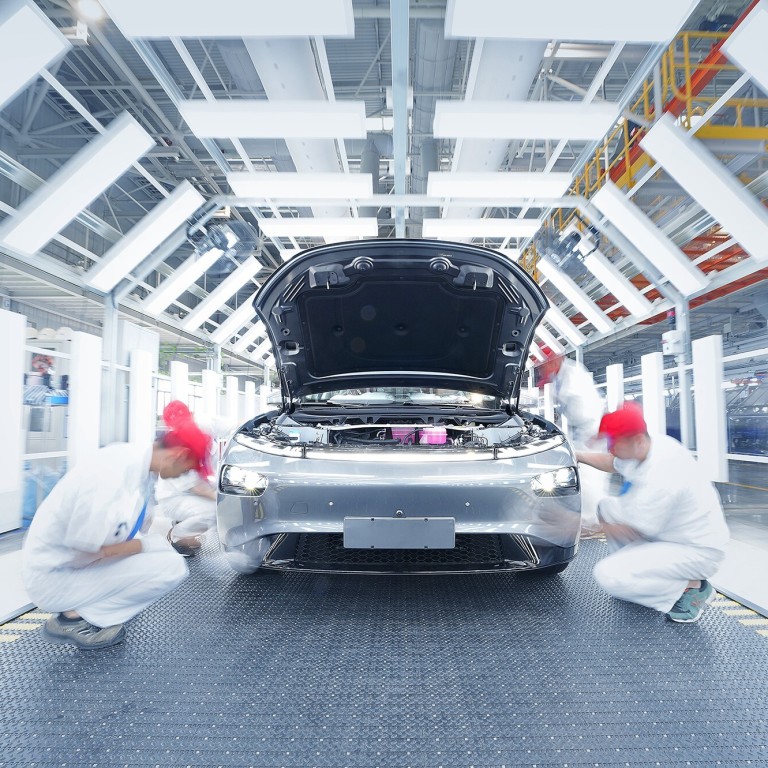
Xpeng seeks to raise up to US$1.1 billion in New York IPO as electric car maker prepares to challenge Tesla in China
- Xpeng’s share sale follows in the tracks of Chinese peer Li Auto’s debut on Nasdaq last month after its US$1.1 billion IPO
- Xpeng has pre-sold 49 per cent of the ADSs on offer
Xpeng is seeking to raise up to US$1.1 billion from its initial public offering on the New York Stock Exchange, as it gears up to challenge Tesla in China, the world’s largest market for electric vehicles.
Four of Xpeng’s existing shareholders – Alibaba Group Holding, Coatue, Qatar Investment Authority and Xiaomi – have indicated an interest in purchasing up to US$200 million, US$100 million, US$50 million and US$50 million, respectively, of the share sale. Primecap Management Company has also put its hand up for US$100 million worth of the ADS. Alibaba owns the South China Morning Post.
The expression of interest from these investors amounts to as much as 49 per cent of the proceeds based on the mid-point of the price range.
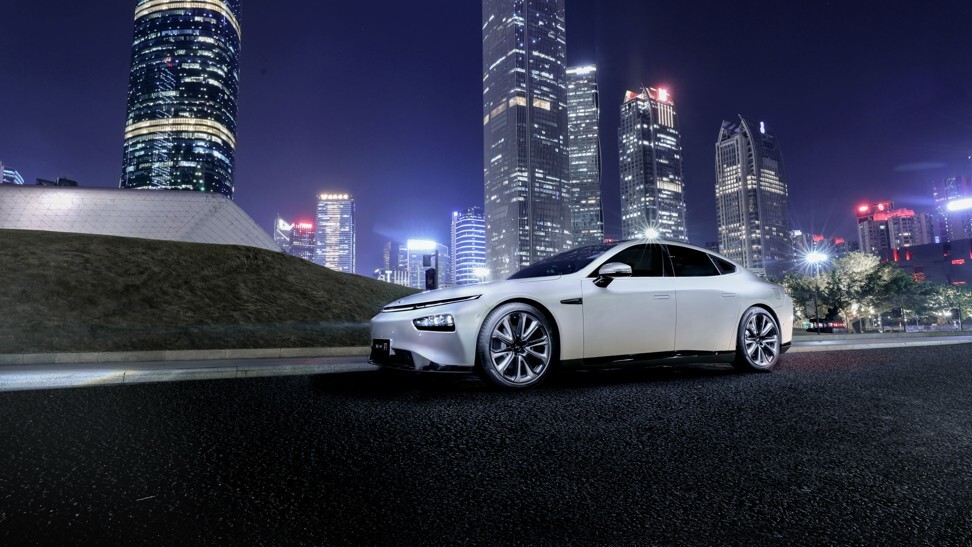
The next step will be to accelerate the marketing process and narrow the range over the coming days. Pricing is due on August 26, according to a terms sheet seen by the Post.
Each American depositary share represents two class A ordinary shares. Each class A ordinary share will be entitled to one vote, and each Class B ordinary share will be entitled to 10 votes.
Founded in 2014 in southern China’s manufacturing hub Guangzhou, Xpeng makes a four-door sports sedan and an electric sports-utility vehicle under the Xpeng Motors brand in the Guangdong provincial city of Zhaoqing and with a contract assembler in the Henan provincial capital of Zhengzhou.
Will Chinese traders’ headlong dive sustain stock rally, or lead to tears?
It chose to list in New York even as US-China relations have deteriorated because the world’s largest capital market still has a far deeper pool of financial liquidity than China, according to people familiar with the company’s thinking.
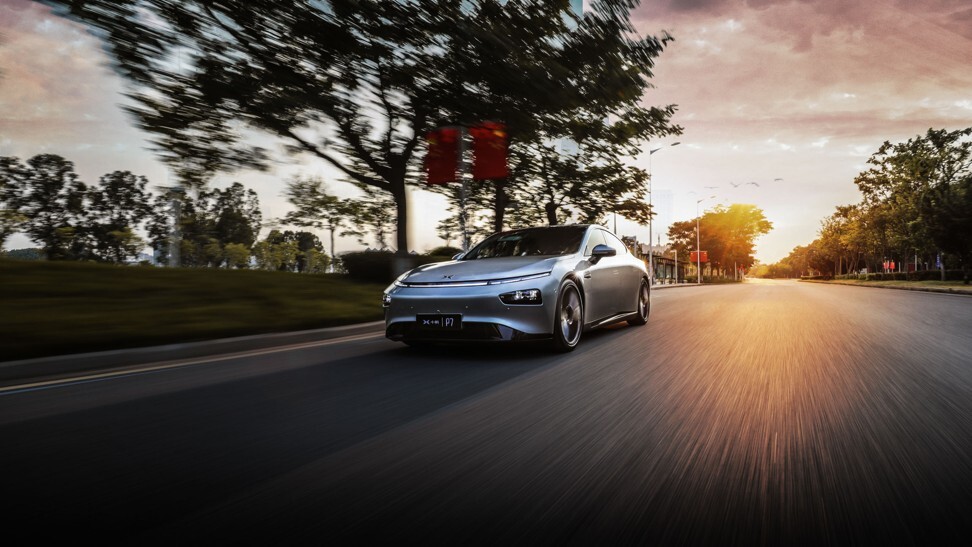
Li Auto’s shares popped 35 per cent on their market debut but have given up some of their gains since. Founded by serial entrepreneur Li Xiang, Li Auto is not directly comparable to pure electric vehicle maker Xpeng in that it makes so-called extended-range hybrid vehicles, where an internal combustion engine provides electrical power if the car’s battery runs down.
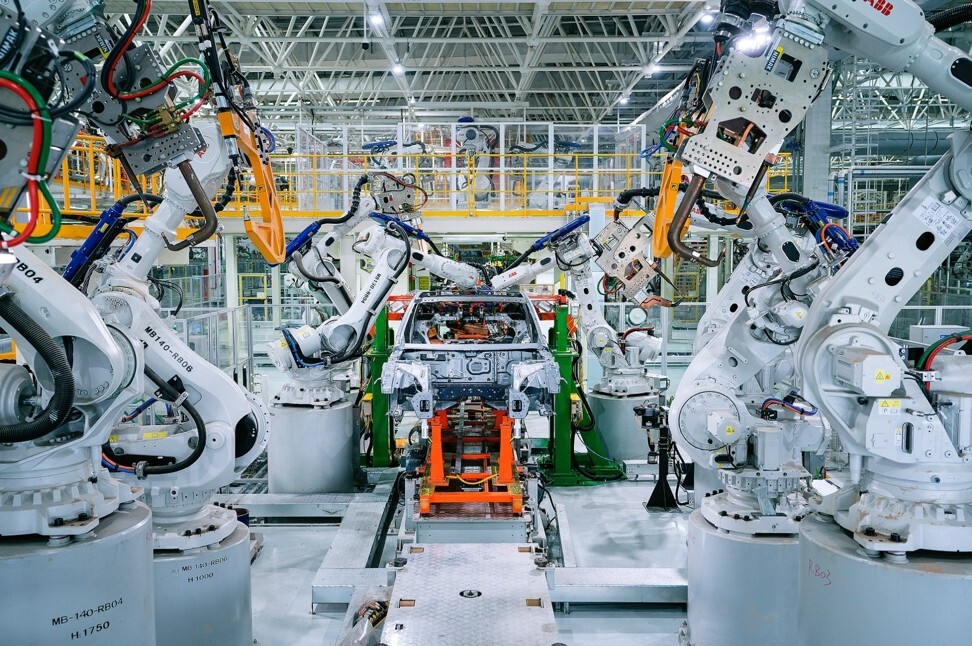
Xpeng’s ADSs are expected to trade under the stock symbol of XPEV. Credit Suisse, JPMorgan, BofA Securities ABCI, BOC International, Futu, Haitong International, Tiger Brokers are handling Xpeng’s share offering, according to a terms sheet seen by the Post.
The company’s fundraising comes after China’s passenger car sales have rebounded from a sharp fall in the first quarter as the coronavirus pandemic closed showrooms. Xpeng generated sales of 1 billion yuan (US$141.9 million) in the six months ended June 30, down from 1.2 billion yuan in the same period a year earlier, its prospectus showed.
Founded by entrepreneur and former Alibaba executive He Xiaopeng, the firm sells to the middle and high end of the smart electric vehicle market in China and prides itself on building its software in-house, end-to-end.
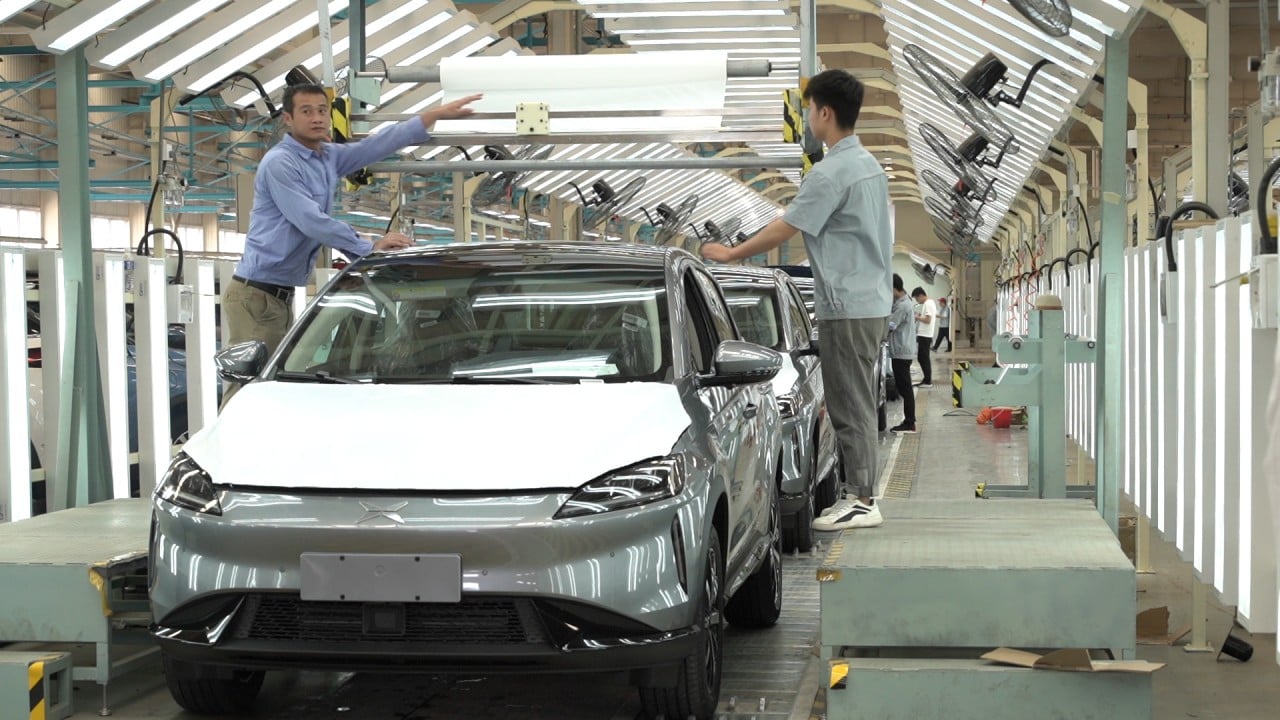
00:47
Vehicle number 10,000 rolls off the assembly line for Chinese electric carmaker XPeng
It uses the Nvidia high-performance chip Xavier and its P7 model is capable of Level 3 autonomous driving on highways, which the company plans to implement later this year or in early 2021 after finalising testing.
Xpeng is rare in publishing the so-called utilisation rate, use of an artificial intelligence function divided by the number of its cars on the road at the time. In June, the average utilisation rate of its cruise control was 66 per cent, lane centring control function was 43 per cent, and its automated parking function was 46 per cent.

